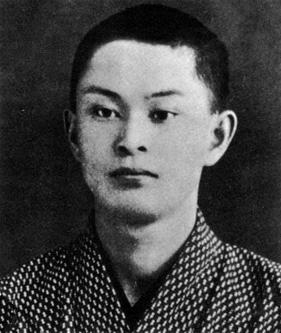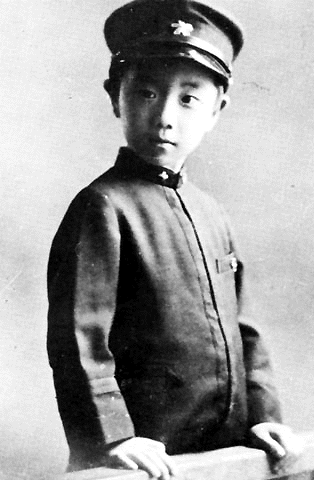|
José Manuel Aguilera
José Manuel Aguilera (born 14 February 1959, in Guadalajara, Mexico) is a Mexican guitar player, singer and composer. He has been part of bands such as Sangre Azteka, Nine Rain and Jaguares. He is the founder and leader of rock band La Barranca. He has also collaborated with artists such as Julieta Venegas, Cecilia Toussaint, Ely Guerra y Lila Downs. Career Aguilera started playing with his cousins and guitarist Luis Arteaga in the band El Fracaso (The Failure) in the area of Ciudad Satélite, Mexico City. In 1986 he was part of the audience in the first gig of the band Sangre Asteka, in the Museo Universitario del Chopo. The next year accordionist Humberto Alvarez invited Aguilera to join Sangre Asteka. In 1994 Aguilera recorded the album ''Odio Fonky: tomas de buró'' with Mexican singer and songwriter Jaime López, which has achieved a cult status in Mexican rock. The album has blues, folk and Danzón influences and consists of 16 songs, including the classic ''Chilanga ... [...More Info...] [...Related Items...] OR: [Wikipedia] [Google] [Baidu] |
Guadalajara
Guadalajara ( ; ) is the capital and the most populous city in the western Mexican List of states of Mexico, state of Jalisco, as well as the most densely populated municipality in Jalisco. According to the 2020 census, the city has a population of 1,385,629 people, making it the 8th most populous city in Mexico, while the Guadalajara metropolitan area has a population of 5,268,642, making it the Metropolitan areas of Mexico#List of metropolitan areas in Mexico by population, third-largest metropolitan area in the country and the List of metropolitan areas in the Americas, twenty-second largest metropolitan area in the Americas. Guadalajara has the second-highest population density in Mexico with over 10,361 people per km2, surpassed only by Mexico City. Within Mexico, Guadalajara is a center of business, arts and culture, technology and tourism; as well as the economic center of the Bajío region. It usually ranks among the 100 most productive and globally competitive cities in t ... [...More Info...] [...Related Items...] OR: [Wikipedia] [Google] [Baidu] |
Saúl Hernández
Saúl Alfonso Hernández Estrada (born January 15, 1964), is a Mexican musician, writer, poet, songwriter and the lead singer of Jaguares and Caifanes, two prominent Mexican rock en español bands. Biography Saúl Hernández was born in the Colonia Guerrero neighborhood of Mexico City on January 15, 1964. He lost his mother at a young age and he explained that this early confrontation with death became an inspiration for many of the songs he has written. His first band was Las Insólitas Imágenes de Aurora, the predecessor to Caifanes. Caifanes After the breakup of Las Insólitas Imágenes de Aurora, the group's demo was widely circulating in the Mexico City music scene. When Caifanes was formed, the lineup consisted of Alfonso André on drums, Sabo Romo on bass and Diego Herrera on keyboard. Alejandro Marcovich would eventually join the band on lead guitar. The band made its first appearance on April 11, 1987 in a forum that would catapult new bands, Rockotitlán ... [...More Info...] [...Related Items...] OR: [Wikipedia] [Google] [Baidu] |
Living People
Purpose: Because living persons may suffer personal harm from inappropriate information, we should watch their articles carefully. By adding an article to this category, it marks them with a notice about sources whenever someone tries to edit them, to remind them of WP:BLP (biographies of living persons) policy that these articles must maintain a neutral point of view, maintain factual accuracy, and be properly sourced. Recent changes to these articles are listed on Special:RecentChangesLinked/Living people. Organization: This category should not be sub-categorized. Entries are generally sorted by family name In many societies, a surname, family name, or last name is the mostly hereditary portion of one's personal name that indicates one's family. It is typically combined with a given name to form the full name of a person, although several give .... Maintenance: Individuals of advanced age (over 90), for whom there has been no new documentation in the last ten ... [...More Info...] [...Related Items...] OR: [Wikipedia] [Google] [Baidu] |
Mexican Rock Guitarists
Mexican may refer to: Mexico and its culture *Being related to, from, or connected to the country of Mexico, in North America ** People *** Mexicans, inhabitants of the country Mexico and their descendants *** Mexica, ancient indigenous people of the Valley of Mexico ** Being related to the State of Mexico, one of the 32 federal entities of Mexico ** Culture of Mexico *** Mexican cuisine *** historical synonym of Nahuatl, language of the Nahua people (including the Mexica) Arts and entertainment * "The Mexican" (short story), by Jack London * "The Mexican" (song), by the band Babe Ruth * Regional Mexican, a Latin music radio format Films * ''The Mexican'' (1918 film), a German silent film * ''The Mexican'' (1955 film), a Soviet film by Vladimir Kaplunovsky based on the Jack London story, starring Georgy Vitsin * ''The Mexican'', a 2001 American comedy film directed by Gore Verbinski, starring Brad Pitt and Julia Roberts Other uses * USS ''Mexican'' (ID-1655), United State ... [...More Info...] [...Related Items...] OR: [Wikipedia] [Google] [Baidu] |
Akira Kurosawa
was a Japanese filmmaker who List of works by Akira Kurosawa, directed 30 feature films in a career spanning six decades. He is widely regarded as one of the greatest and most influential filmmakers in the History of film, history of cinema. Kurosawa displayed a Filmmaking technique of Akira Kurosawa, bold, dynamic style strongly influenced by Western cinema yet distinct from it. He was involved with all aspects of film production. Kurosawa entered the Cinema of Japan, Japanese film industry in 1936, following a brief stint as a painter. After years of working on numerous films as an assistant director and scriptwriter, he made his debut as a director during World War II with the popular action film ''Sanshiro Sugata'' (1943). After the war, the critically acclaimed ''Drunken Angel'' (1948), in which Kurosawa cast the then-little-known actor Toshiro Mifune in a starring role, cemented the director's reputation as one of the most important young filmmakers in Japan. The two m ... [...More Info...] [...Related Items...] OR: [Wikipedia] [Google] [Baidu] |
Yasunari Kawabata
was a Japanese novelist and short story writer whose spare, lyrical, subtly-shaded prose works won him the 1968 Nobel Prize in Literature, the first Japanese author to receive the award. His works have enjoyed broad international appeal and are still widely read. Early life Born into a well-established family in Osaka, Japan, Kawabata was orphaned by the time he was four, after which he lived with his grandparents. He had an older sister who was taken in by an aunt, and whom he met only once thereafter, in July 1909, when he was ten. She died when Kawabata was 11. Kawabata's grandmother died in September 1906, when he was seven, and his grandfather in May 1914, when he was fifteen. Having lost all close paternal relatives, Kawabata moved in with his mother's family, the Kurodas. However, in January 1916, he moved into a boarding house near the junior high school (comparable to a modern high school) to which he had formerly commuted by train. After graduating in March 1917, ... [...More Info...] [...Related Items...] OR: [Wikipedia] [Google] [Baidu] |
Yukio Mishima
Kimitake Hiraoka ( , ''Hiraoka Kimitake''; 14 January 192525 November 1970), known by his pen name Yukio Mishima ( , ''Mishima Yukio''), was a Japanese author, poet, playwright, actor, model, Shintoist, Ultranationalism (Japan), ultranationalist, and the leader of an attempted coup d'état that culminated in his ''seppuku'' (ritual suicide). Mishima is considered one of the most important Postwar Japan, postwar stylists of the Japanese language. He was List of nominees for the Nobel Prize in Literature#1960%E2%80%931969, nominated for the Nobel Prize in Literature five times in the 1960s—including in 1968, when the award went to his countryman and benefactor Yasunari Kawabata. Mishima's works include the novels ''Confessions of a Mask'' and ''The Temple of the Golden Pavilion'', and the autobiographical essay ''Sun and Steel (essay), Sun and Steel''. Mishima's work is characterized by "its luxurious vocabulary and decadent metaphors, its fusion of traditional Japanese and mod ... [...More Info...] [...Related Items...] OR: [Wikipedia] [Google] [Baidu] |
Juan Rulfo
Juan Nepomuceno Carlos Pérez Rulfo Vizcaíno, best known as Juan Rulfo (; 16 May 1917 – 7 January 1986), was a Mexican writer, screenwriter, and photographer. He is best known for two literary works, the 1955 novel ''Pedro Páramo'', and the collection of short stories '' El Llano en llamas'' (1953). This collection includes the popular tale "¡Diles que no me maten!" ("Tell Them Not to Kill Me!"). Early life Rulfo was born in 1917 in Apulco, Jalisco (Disputed as being in San Gabriel, Jalisco) Mexico, although he was registered at Sayula, in the home of his paternal grandfather. Rulfo's birth year was often listed as 1918, because he had provided an inaccurate date to get into the military academy that his uncle, David Pérez Rulfo — a colonel working for the government — directed. After his father was killed in 1923 and his mother died in 1927, Rulfo's grandmother raised him in Guadalajara, Jalisco. Their extended family consisted of landowners whose fortunes were rui ... [...More Info...] [...Related Items...] OR: [Wikipedia] [Google] [Baidu] |
El Equilibrio De Los Jaguares
''El Equilibrio de los Jaguares'' is the debut album by the Mexican rock band Jaguares. It was released on September 17, 1996, under the label Bertelsmann de Mexico (BMG). It was produced by Don Was, Ed Cherney, and the band. Lead singer and songwriter Saúl Hernández and drummer Alfonso André credited as the only members of the band. Guest musicians include José Manuel Aguilera, Federico Fong, Cecilia Toussaint, Benmont Tench, Billy Preston and Flaco Jiménez. Track listing Personnel * Saul Hernández – vocals, acoustic guitar, electric guitar * Alfonso Andre – drums * Jose Manuel Aguilera – electric guitar * Federico Fong – bass guitar Other personnel * Mark Isham – trumpet * Flaco Jiménez – accordion * Billy Preston – organ, keyboards * Benmont Tench – keyboards * Cecilia Toussaint - vocals * Tracy Bartelle – vocals * Gabe Witcher – violin The violin, sometimes referred to as a fiddle, is a wooden chordophone, and is the smallest, and thus ... [...More Info...] [...Related Items...] OR: [Wikipedia] [Google] [Baidu] |
Federico Fong
Federico Vicente Fong Pharris (born 1967) simply known as Federico Fong is a musician and producer, member of several bands in Mexico and the United States; these include Hip Hop Hoodíos, Jaguares,Kim, Jae-Ha (28 February 1997)Year of the cat? Jaguares prowls U.S. ''Chicago Sun-Times'' ("When that group disbanded Andre and Hernandez went on to form Jaguares which also includes guitarist Jose Manuel Aguilera and bassist Federico Fong") La Barranca, Caifanes,Guzman, Isaac (25 January 2002)OYS IN THE 'HOOD - MEET THE LATIN-JEWISH RAPPERS ''Daily News (New York)'' ("...drummer Federico Fong, a former member of the celebrated Mexican band Caifanes.") and Fobia. Biography Born in Northern California's Bay Area in 1967 to a Panamanian father of Chinese descent and an American mother, Fong relocated at a young age with his family to Mexico City where he has lived for the majority of his life. He was a resident of Brooklyn, New York New York most commonly refers to: * New York (st ... [...More Info...] [...Related Items...] OR: [Wikipedia] [Google] [Baidu] |




